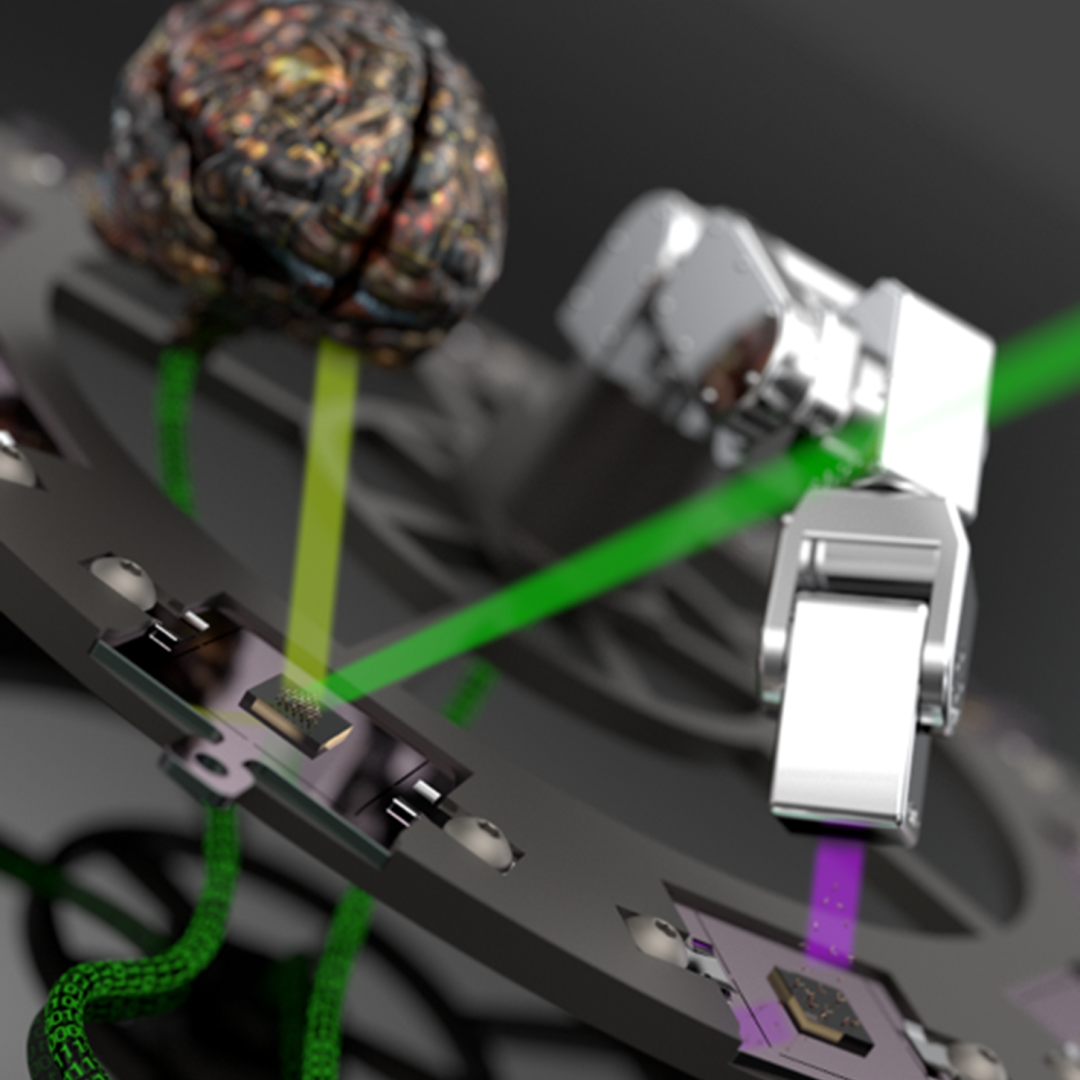Filter News
Area of Research
News Type
News Topics
- (-) Frontier (16)
- (-) Quantum Computing (10)
- (-) Software (1)
- 3-D Printing/Advanced Manufacturing (50)
- Advanced Reactors (12)
- Artificial Intelligence (31)
- Big Data (11)
- Bioenergy (25)
- Biology (23)
- Biomedical (18)
- Biotechnology (7)
- Buildings (16)
- Chemical Sciences (33)
- Clean Water (1)
- Climate Change (25)
- Composites (10)
- Computer Science (61)
- Coronavirus (17)
- Critical Materials (11)
- Cybersecurity (18)
- Decarbonization (22)
- Education (3)
- Element Discovery (1)
- Energy Storage (44)
- Environment (45)
- Exascale Computing (12)
- Fossil Energy (1)
- Fusion (14)
- Grid (17)
- High-Performance Computing (31)
- Irradiation (1)
- Isotopes (20)
- ITER (2)
- Machine Learning (14)
- Materials (69)
- Materials Science (54)
- Mercury (2)
- Microscopy (18)
- Molten Salt (2)
- Nanotechnology (28)
- National Security (20)
- Net Zero (4)
- Neutron Science (56)
- Nuclear Energy (32)
- Partnerships (27)
- Physics (24)
- Polymers (13)
- Quantum Science (28)
- Renewable Energy (1)
- Security (11)
- Simulation (11)
- Space Exploration (3)
- Statistics (2)
- Summit (21)
- Sustainable Energy (36)
- Transformational Challenge Reactor (4)
- Transportation (30)
Media Contacts

Joseph Chapman, a research scientist in quantum communications at ORNL, was given the Physical Review Applied Reviewer Excellence 2024 award for his work as a peer reviewer for the journal Physical Review Applied.
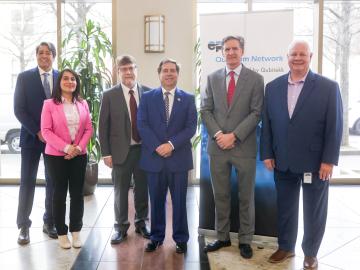
EPB, ORNL announce plans for research collaborative focused on energy resilience, quantum technology
EPB and ORNL marked 10 years of collaboration with the announcement of the new Collaborative for Energy Resilience and Quantum Science. The new joint research effort will focus on utilizing Chattanooga’s highly advanced and integrated energy and communications infrastructure to develop technologies and best practices for enhancing the resilience and security of the national power grid while accelerating the commercialization of quantum technologies.
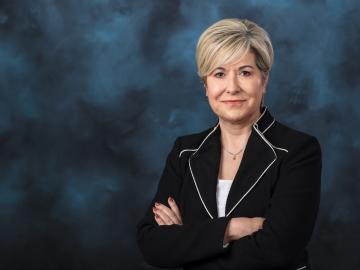
Effective Dec. 4, Gina Tourassi will assume responsibilities as associate laboratory director for the Computing and Computational Sciences Directorate at the Department of Energy’s Oak Ridge National Laboratory.
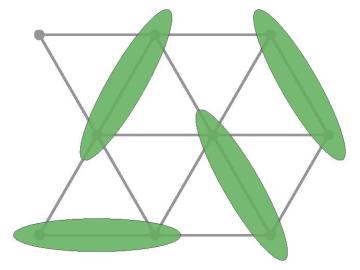
A team of researchers associated with the Quantum Science Center headquartered at the Department of Energy's Oak Ridge National Laboratory has confirmed the presence of quantum spin liquid behavior in a new material with a triangular lattice, KYbSe2.
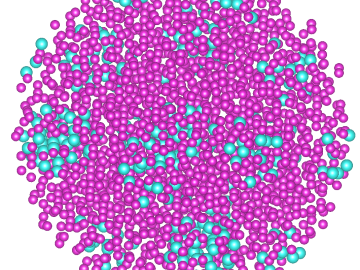
Researchers used the world’s first exascale supercomputer to run one of the largest simulations of an alloy ever and achieve near-quantum accuracy.
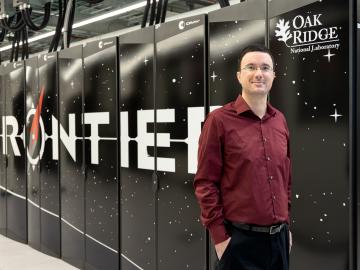
The Exascale Small Modular Reactor effort, or ExaSMR, is a software stack developed over seven years under the Department of Energy’s Exascale Computing Project to produce the highest-resolution simulations of nuclear reactor systems to date. Now, ExaSMR has been nominated for a 2023 Gordon Bell Prize by the Association for Computing Machinery and is one of six finalists for the annual award, which honors outstanding achievements in high-performance computing from a variety of scientific domains.
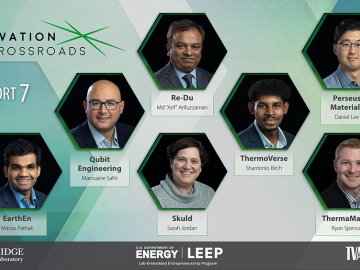
Seven entrepreneurs will embark on a two-year fellowship as the seventh cohort of Innovation Crossroads kicks off this month at ORNL. Representing a range of transformative energy technologies, Cohort 7 is a diverse class of innovators with promising new companies.
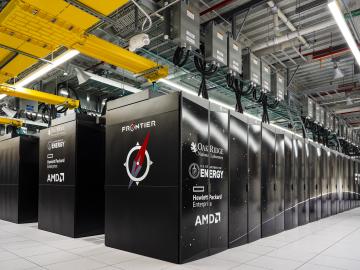
Innovations in artificial intelligence are rapidly shaping our world, from virtual assistants and chatbots to self-driving cars and automated manufacturing.
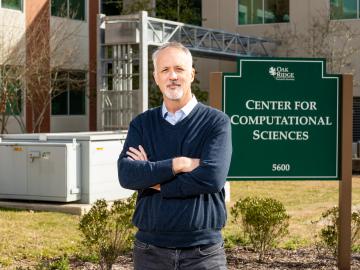
The Oak Ridge Leadership Computing Facility’s Matt Sieger has been named the project director for the OLCF-6 effort. This next OLCF undertaking will plan and build a world-class successor to the OLCF’s still-new exascale system, Frontier.
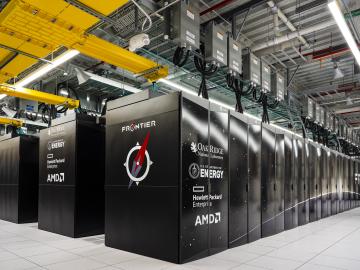
With the world’s first exascale supercomputing system now open to full user operations, research teams are harnessing Frontier’s power and speed to tackle some of the most challenging problems in modern science.


